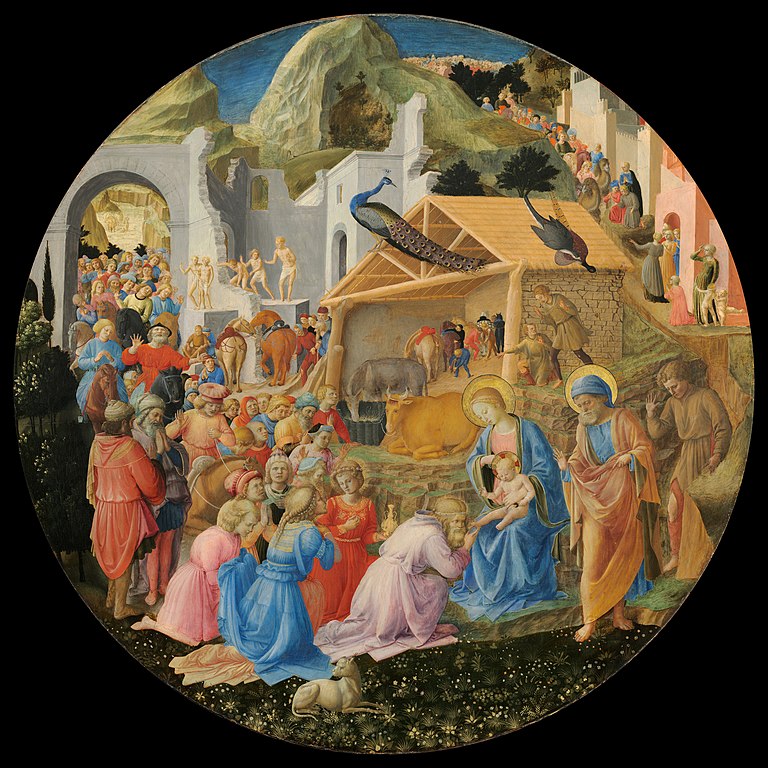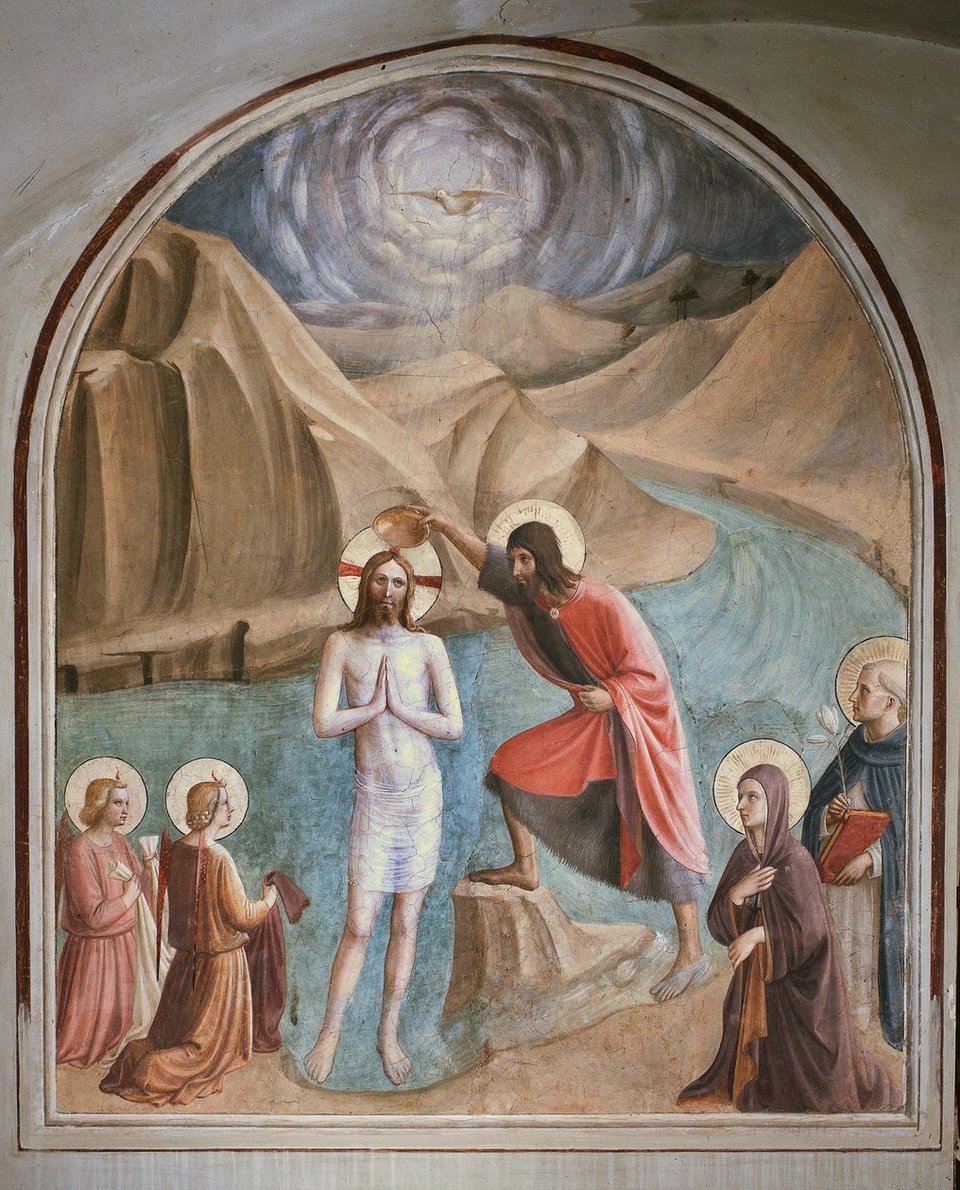Obscurity, Mystery, Glory
Obscurity, Mystery, Glory

"Obscurity" is the opposite of "clarity". It is the abstract noun that corresponds to the adjective obscure, from Latin obscūrus. The meanings of obscūrus run exactly opposite to those of Latin clarus. Whatever is clarus makes a distinct and vivid impression upon either the eye or mind. All that is obscūrus is dark or dim, in either the visual or cognitive sense.
In the newsletter on clarity, I noted the extended meanings of clarus (“renowned, illustrious”) which describe a thing's being known and recognized rather than any intrinsic "brilliance" in the thing itself. Obscūrus has an exactly contrary extended meaning. It describes what is "undistinguished, insignificant, or humble."
"Mystery" derives from Latin mystērium, a borrowing from Greek (μυστήριον). Both words mean "secret"—specifically the "secret rites" or "mysteries" of ancient pagan religion, for example, the Eleusinian Mysteries. The Greek word is formed from the verb μύειν, which means "to close the lips or eyes." The idea was that, unless you had been duly initiated, you were not supposed to see the mystery rites (eyes closed), and once you had been duly initiated, you were not supposed to say anything about them (lips closed).
In early Christianity, the Greek and Latin words developed two specific meanings: 1) mystical truth, i.e. truth revealed by God that exceeds human comprehension; and 2) the rituals or sacraments of Christian religion, especially the Holy Eucharist.
"Glory" is a borrowing from Old French glorie, which derives from Latin glōria. Modern etymology traces its origin back to Sanscrit words that refer to "hearing.” Glory is thus all the good that is heard about a thing or person.
St. Thomas Aquinas, however, employs a different etymology of glōria, one current in his own day (ST II-II, Q. 103, A. 1) (Latin). After distinguishing honor (honor) and praise (laus)—each is an attestation of another's excellence but praise consists specifically in words—St. Thomas states that the effect of honor and praise is the same, namely, glory.
Following a gloss of St. Ambrose on Romans chapter one, Thomas explains that "glory is the vivid awareness of goodness that attends praise" (gloria est clara cum laude notitia). Praise, or honor, causes "clarification", we could say. "From our act of bearing witness to another's goodness, that person's goodness becomes clear [clarescit] in the awareness of a great many people." Herein lies, says St. Thomas, the origin of the word gloria, formed as if from claria. A thing's "glory" simply is its "clarity"—the recognition, the vivid awareness, of its goodness.
Attention to these words and their etymology helps me understand the glory of Christmas, which comes to its crescendo at the wonderful feast of Epiphany—which literally means "a becoming visible." God the Son, who is Himself the source of all clarity—“the brightness of God’s own glory” (Hebrews 1)—accepts by His Incarnation the most radical condition of obscurity, and by this wonderful mystery manifests to the world His true glory.

A Season for Carols
The word carol now occurs most frequently, in English, in the phrase Christmas carol. Its most widespread current meaning is: “A song or hymn of joy sung at Christmas in celebration of the Nativity. Rarely applied to hymns on certain other festal occasions” (OED). But that latter part of the definition hints at a wider original significance. For a carol is also simply “a song or hymn of religious joy.” Such songs were once typically accompanied by dance—the earliest meaning of the word “carol” in English was “a ring of men or women holding hands and moving round in dancing step.”
That early sense of the word illustrates the path of its derivation through various Romance languages back to Latin and Greek. Modern etymologists offer rival (or perhaps complementary) accounts of its origin. Some trace it back to Latin chorus, from Greek χορός, “a band of singing dancers”; while others find its origin in Latin corolla, “a little crown, coronet, or garland.” The basic ideas are thus: joyful-song-and-dance and circular-form-or-motion for the sake of glorification. Caroling, we could say, is a fitting response (the most fitting response?) of humans to the eternal life of the Holy Trinity—its perichoresis, its eternal rotation of infinite Love.
Links
Courtesy of my friend Chris Shannon, from an interview with Robert Edwards about his new translation of St. John Chrysostom’s Consolation to Stagirius:
As Christians, we have been called not only to Christ himself, but also into his body. That we belong to such a body requires that we listen to its other members, across both time and space. But it is more than a requirement. It is also a gift. These other members of Christ’s body have been gifted with the same Holy Spirit as us, and many of them have drunk deeply of those living waters and listened deeply to the voice of God in the Scriptures. It is incumbent upon us to treat our brothers and sisters as the gifts that they are—even, and especially, in the ways that they differ from us. To reject them and their gifts is a grave mistake. The brothers and sisters to whom we especially ought to listen are those ancient Christians who contributed to a divinely-led consensus on true teaching and living.…
Practically, what does listening to these Christians do for us? It pushes us and pulls us. It helps us to see outside of our own cultures and contexts. It helps us to see the things that we have always assumed to be true, but which have little basis in revelation. It corrects us. Sometimes the words of our brothers and sisters tear us down and sometimes they build us up—but all for our own good and, ultimately, for our sanctification. If we are willing, they lead us to see that God and the things of God are greater than we at first expected. Any activities that allow our souls and minds and bodies to be so shaped are worthwhile and have lasting significance.
Alan Jacobs has begun a wonderful series of blog posts on the topic of family. That link should go to the first post in the series. Read that post and then scroll up to read the rest in sequence.